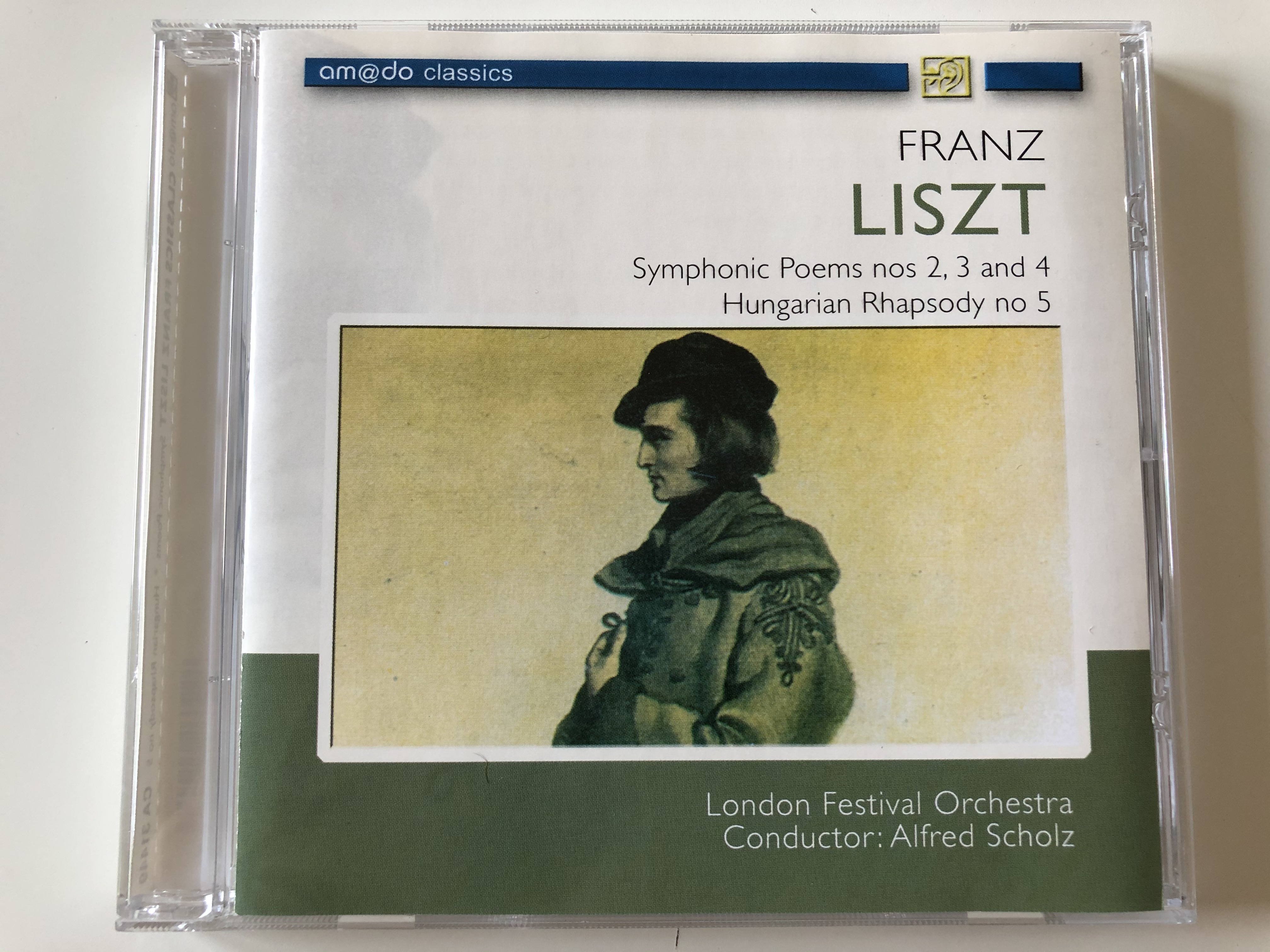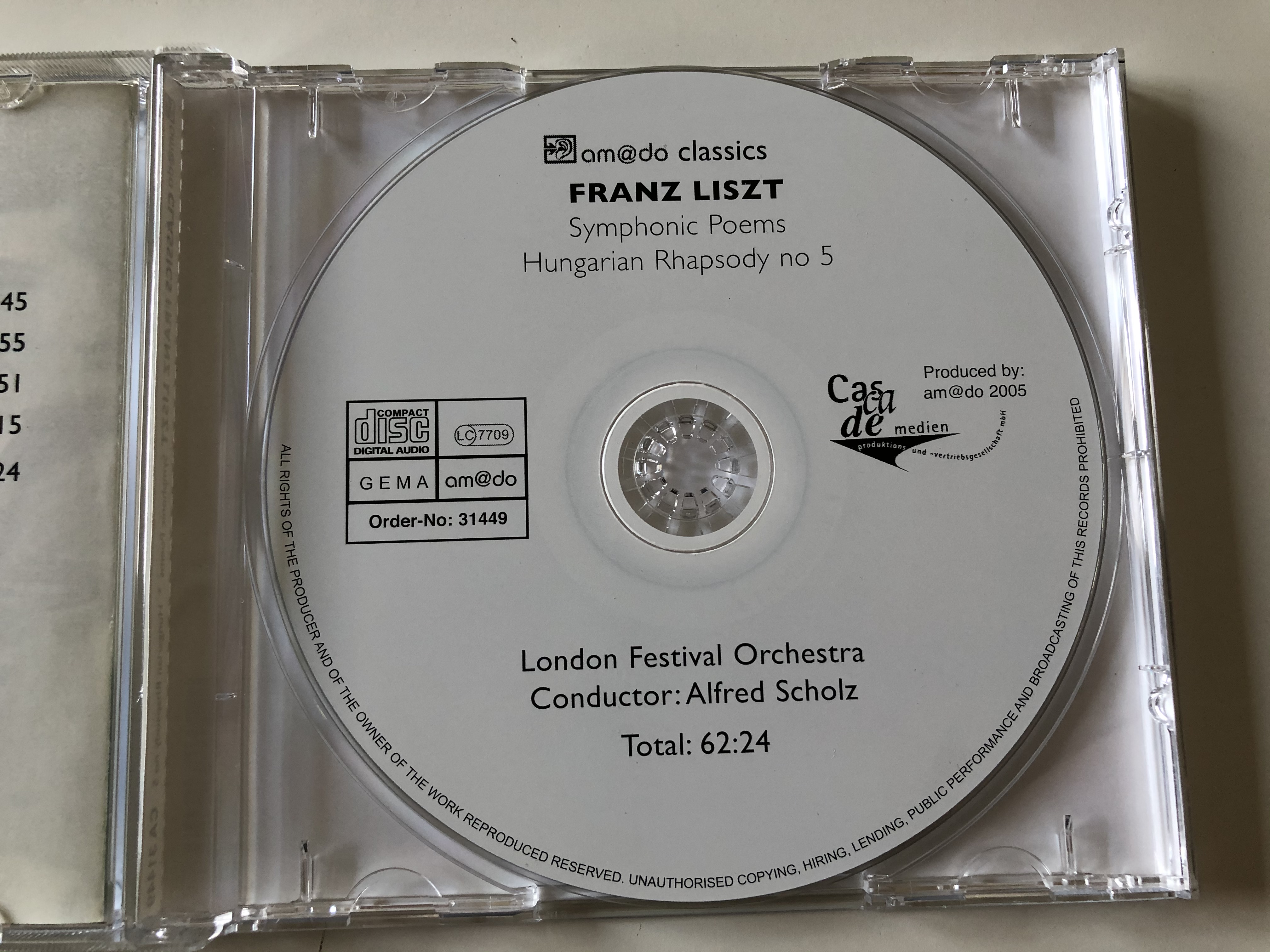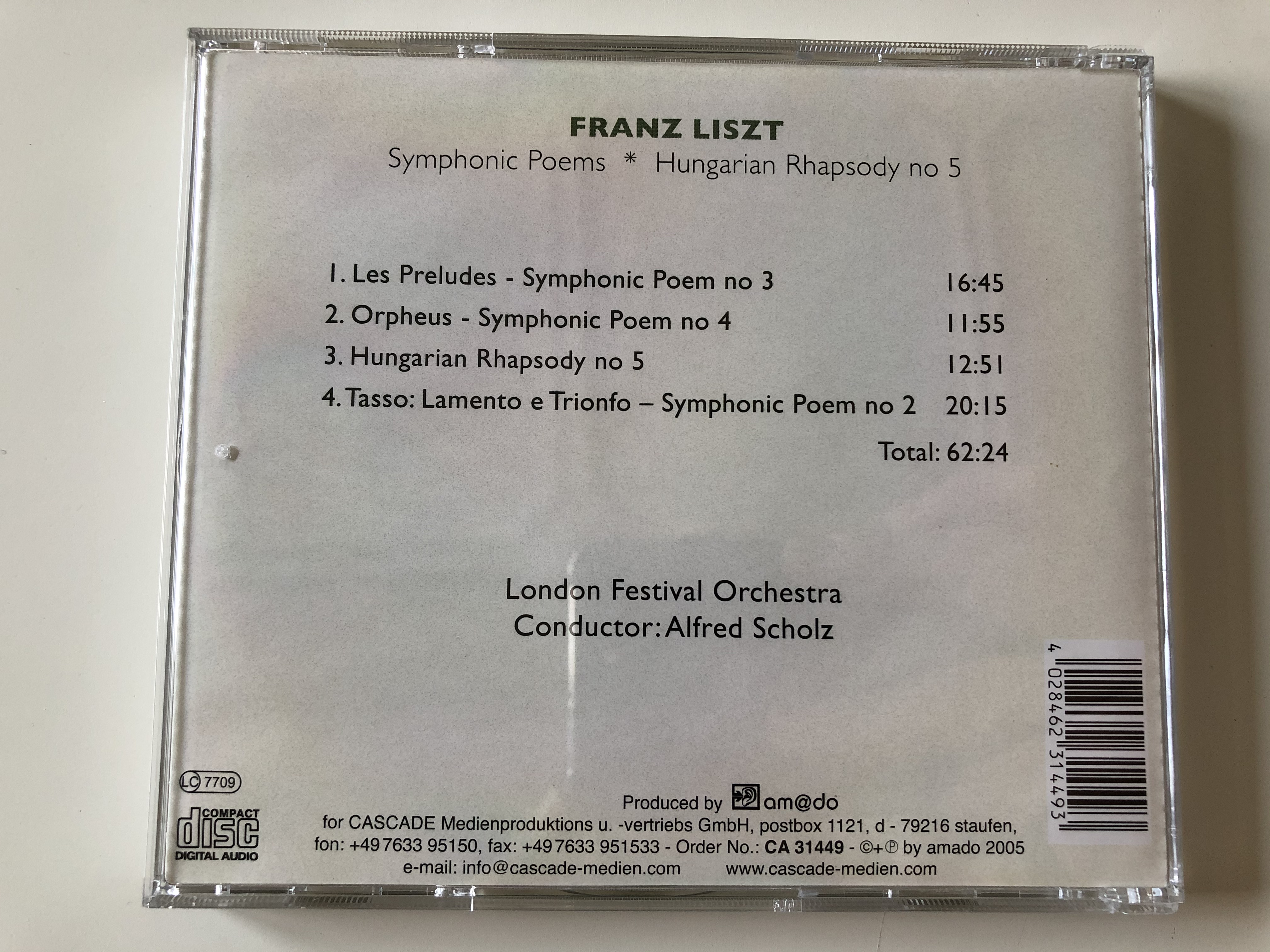Description
Franz Liszt - Symphonic Poems nos 2, 3 and 4, Hungarian Rhapsody no 5 / London Festival Orchestra, Conductor: Alfred Scholz / Amado Audio CD 2005 / 31449
UPC 4028462314493
Product Details:
Tracklist:
1. Les Preludes - Symphonic Poem no 3 16:45
2. Orpheus - Symphonic Poem no 4 11:55
3. Hungarian Rhapsody no 5 12:51
4. Tasso: Lamento e Trionfo — Symphonic Poem no 2 20:15
- Orchestra - London Festival Orchestra
- Conductor - Alfred Scholz
German Description:
1. Les Preludes - Symphonische Dichtung Nr.3 / Symphonic Poem No.3 16:45
2. Orpheus - Symphonische Dichtung Nr.4 / Symphonic Poem No.4 11:55
3, Ungarische Rhapsodie Nr.5 - Hungarian Rhapsody No.5 12:51
4, Tasso, Lamento & Trionfo - Symphonische Dichtung Nr.2 / Symphonic Poem No.2 20:15
About Franz Liszt:
Franz Liszt (Hungarian: Liszt Ferencz, in modern usage Liszt Ferenc; 22 October 1811 – 31 July 1886) was a Hungarian composer, virtuoso pianist, conductor, music teacher, arranger, and organist of the Romantic era. He was also a writer, a philanthropist, a Hungarian nationalist and a Franciscan tertiary.
Liszt gained renown in Europe during the early nineteenth century for his prodigious virtuosic skill as a pianist. He was a friend, musical promoter and benefactor to many composers of his time, including Frédéric Chopin, Charles-Valentin Alkan, Richard Wagner, Hector Berlioz, Robert Schumann, Camille Saint-Saëns, Edvard Grieg, Ole Bull, Joachim Raff, Mikhail Glinka, and Alexander Borodin.
A prolific composer, Liszt was one of the most prominent representatives of the New German School (German: Neudeutsche Schule). He left behind an extensive and diverse body of work which influenced his forward-looking contemporaries and anticipated 20th-century ideas and trends. Among Liszt's musical contributions were the symphonic poem, developing thematic transformation as part of his experiments in musical form, and radical innovations in harmony.



























